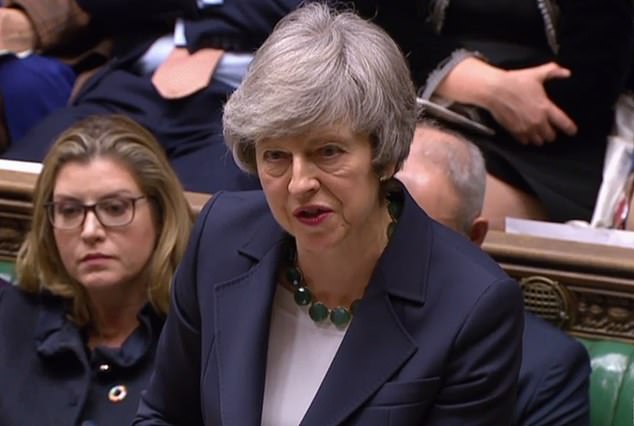MPs have narrowly approved a bill which compels Theresa May to seek a further extension of Article 50 to prevent a no-deal Brexit on 12 April.
The bill, laid by Labour’s Yvette Cooper, requires the government to bring a legally binding vote to the Commons, seeking an extension to Article 50, where MPs will be able to determine the length of the extension.
313 MPs voted for the bill, and 312 voted against – a majority of one.
However, this does not bind the European Union to the decision, who could reject the outcome of the vote and not offer an extension.
The bill raced through parliament in under six hours, as backbench MPs took control of the parliamentary agenda from the government.
The bill now progresses to the House of Lords, where peers will have opportunities to amend the bill.
Meanwhile, Theresa May and Jeremy Corbyn have held a first round of talks on a possible compromise Brexit deal, with both sides describing the meeting as “constructive”.
The pair sat down for face-to-face discussions after the prime minister’s dramatic Downing Street announcement that she was willing to seek a cross-party agreement to break the logjam.
But while Number 10 and Labour both issued positive statements in the wake of the talks, Mr Corbyn sounded a slightly more downbeat assessment of the meeting.
He described it as “useful but inconclusive”, adding: “There hasn’t been as much change as I expected but we will have further discussions tomorrow [Thursday] to explore technical issues.”
Mr Corbyn added that he put forward Labour’s view that “we want to achieve a customs union with the European Union, we want to have access to the market and, in particular, we discussed the dynamic regulatory alignment that is guaranteeing European regulations as a minimum on the environment as well as consumer and employment rights”.
He reiterated his view that a second referendum should be held to stop either a no-deal Brexit or “leaving on a bad deal”.
The major shift in strategy from the prime minister – which also includes seeking another delay to Brexit beyond 12 April – has provoked fury in her party.
Two ministers quit the government and a host of backbenchers used Prime Minister’s Questions to express their anger.
Wales minister Nigel Adams said the decision to offer talks with Labour was a “grave error”.
The close ally of Boris Johnson said in his resignation letter to Mrs May: “It now seems that you and your cabinet have decided that a deal cooked up with a Marxist who has never once in his political life put British interests first is better than no-deal. I profoundly disagree with this approach.”
Chris Heaton-Harris quit as a Brexit minister, saying his role in the department overseeing no-deal preparations had been made “irrelevant” by Mrs May’s determination to avoid such a scenario at all costs.
The prime minister told MPs that the purpose of the meeting with Mr Corbyn was “to look at those areas we agree on”.
“I think we both want to deliver leaving the EU with a deal,” she said.
“I think we both want to protect jobs. I think we both want to ensure that we end free movement. I think we both recognise the importance of the withdrawal agreement.
“What we want to do now is find a way forward that can command the support of this House and deliver on Brexit, deliver on the result of the referendum and ensure that people can continue to have trust in their politicians doing what they ask us to do.”
As well as holding talks with Mr Corbyn, the prime minister met with Scottish First Minister Nicola Sturgeon and Welsh First Minister Mark Drakeford.
There was a glimmer of good news for Mrs May, with MPs failing in a bid to take control of the Commons timetable on Monday for a third round of indicative votes on Brexit alternatives.
In a remarkable turn of events not seen in the chamber since the early 1990s, Speaker John Bercow had to break a 310-310 tie.
He cast his vote with the noes, in line with parliamentary precedent.








